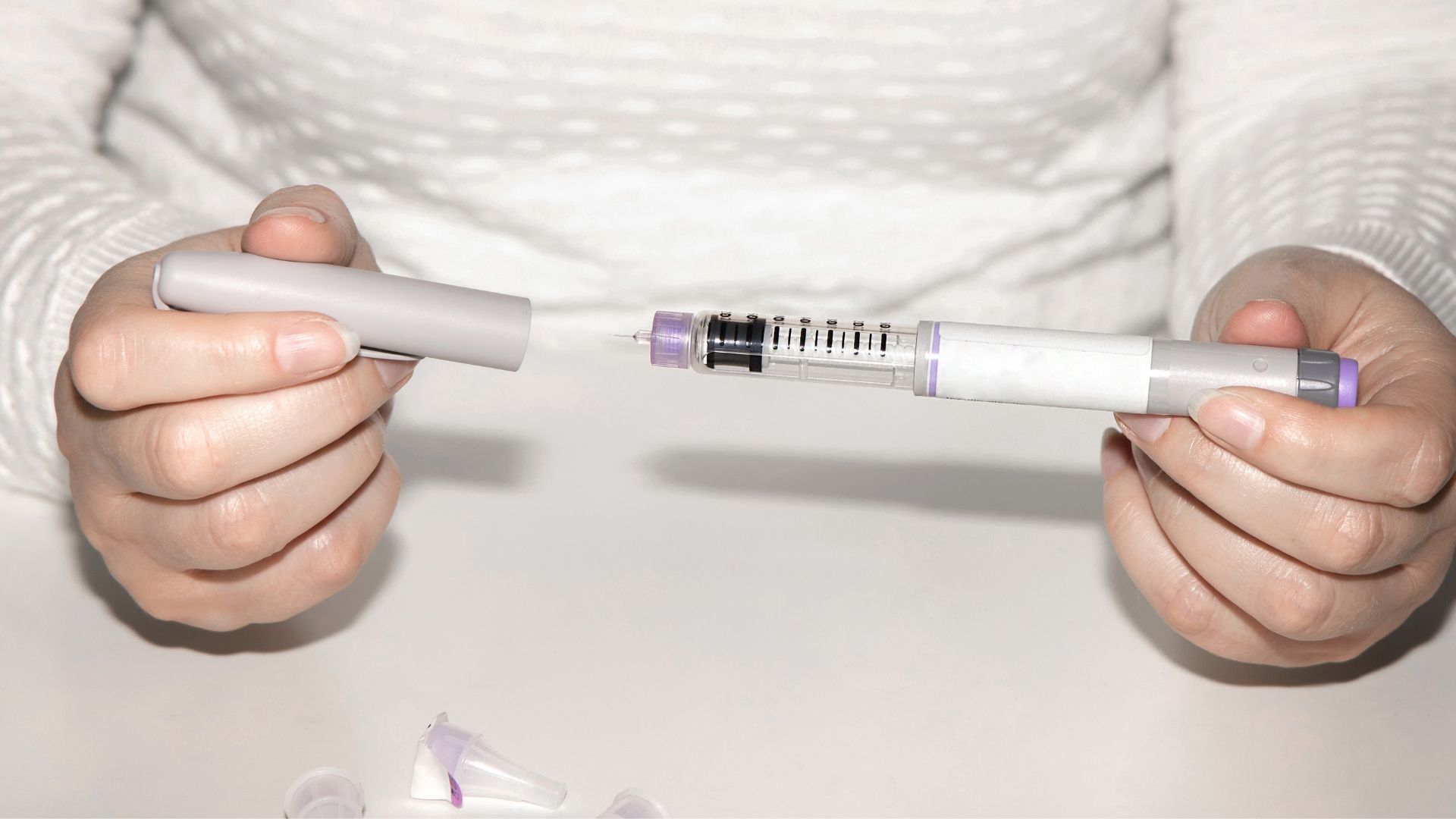Who should NOT take Mounjaro?
Who should NOT take Mounjaro? Like all prescription drugs, this weight loss injection isn't for everyone. Learn who should avoid it.

Mounjaro (tirzepatide) is one of the most effective weight loss medications available today. It helps reduce appetite, slows digestion and supports steady, meaningful weight loss.
Like any prescription treatment, however, it isn't right for everyone.
This article explores who should avoid Mounjaro and why proper medical screening matters. Remember: understanding the risks is just as important as knowing the benefits.
Why some people shouldn't take Mounjaro
Mounjaro works by mimicking two gut hormones: GLP-1 and GIP. These hormones help regulate appetite, insulin and digestion. For most people, this helps them feel less hungry and experience fewer cravings while improving their blood sugar control.
But because these hormones affect multiple systems in the body, they can cause problems in people with certain health conditions or those taking specific medications. Mounjaro may not work as expected for some people. In other cases, it may increase the risk of side effects or complications.
This is why a thorough medical screening is essential before starting any GLP-1 treatment. Your provider needs to make sure the medication is safe for you and suitable for your body.
Who should not take Mounjaro?
In this section, we list six groups of people who should not take Mounjaro.
You may or may not fall into one of these groups – and even if you don't, your prescriber might decide it isn't right for you. Don't be disheartened if this is the case. Remember that your healthcare provider is looking out for your health and well-being above all else.
1. People who are pregnant or trying to conceive
Mounjaro is not recommended during pregnancy. There isn't enough research in humans to confirm its safety.
This applies to other GLP-1 weight loss medications, too. They are generally not recommended at any stage of pregnancy because they may reduce the nutrients your baby needs to grow. Losing weight quickly while pregnant may also be linked to an increased risk of miscarriage and poor fetal development.
If you're currently taking Mounjaro and become pregnant, you should speak to a medical professional straight away. The usual advice is to stop Mounjaro at least two months before trying to conceive.
2. People who are breastfeeding
We don't yet know whether tirzepatide passes into breastmilk. However, we do know that it affects hormones and metabolism – and this means the possibility of risks to the baby.

Until we know more, Mounjaro should not be used while breastfeeding. If you plan to breastfeed soon, your prescriber may suggest delaying treatment or choosing a different option that leaves your system more quickly.
This precaution protects not only your child but also your hormonal balance during the postpartum period.
3. People on the contraceptive pill
Tirzepatide slows the movement of food and tablets through the digestive system. That means it may affect how oral contraceptives are absorbed, especially during the first few weeks of Mounjaro treatment or after a dose increase.
That's why anyone taking the pill is advised to use an additional form of contraception, such as condoms. You should do this for at least four weeks after starting or increasing your Mounjaro dose.¹ Some people choose to switch to a non-oral method, such as the patch or implant, for extra protection.
For more information, read our guidance on Mounjaro and the contraceptive pill.
4. People taking certain medications
Mounjaro is not advised for people taking certain medications. Extra care is needed if you take:
- Insulin or sulfonylureas such as gliclazide and glipizide. Taking these at the same time as Mounjaro can raise the risk of severe low blood sugar. Because of this, some providers (including SemaPen) don't prescribe Mounjaro alongside these drugs.
- DPP-4 inhibitors (medications ending in -gliptin). These aren't recommended with Mounjaro as they act on the same hormone pathway.
- Other GLP-1 medications similar to Mounjaro, such as semaglutide (Wegovy/Ozempic).
- Thyroid hormone replacements or blood pressure medicines, which may require dose adjustments.
- Drugs that affect kidney or liver function, which can increase the risk of side effects.
If you're taking any of these, your prescriber may contact your GP (with your consent) or suggest a safer alternative. Always share your full medication list with your provider – including supplements – so they can assess what's right for you.
5. People with certain health conditions
Mounjaro is not recommended for people with any of these health conditions:
- Medullary thyroid carcinoma (MTC), or a family history of it
- Multiple endocrine neoplasia type 2 (MEN2)
- A history of pancreatitis
- Gastroparesis, where digestion is already delayed
In some cases, your prescriber may suggest further tests or specialised input before making a final decision.
Even if you feel well, some of these conditions can go unnoticed for years. Family history matters, so make sure to share it during your assessment.

6. Children and young people
Mounjaro is approved for adults only. It's not licensed for use in people under 18, even in cases of severe obesity.
Trials are ongoing to assess safety and effectiveness in younger age groups. Until that data is available, tirzepatide remains an adults-only treatment.
If you're concerned about a child's weight, speak to a GP or paediatric specialist for support. They can offer age-appropriate interventions.
NHS vs private eligibility
Can you get Mounjaro on the NHS? Sometimes, but access is currently limited.
Mounjaro is in the process of being rolled out on the NHS. As part of this rollout, the NHS is offering the drug to a very select group of people.
That's why the NHS prescribing criteria are so restrictive right now. To access Mounjaro on the NHS, you must have a BMI over 40 and at least four serious obesity-related conditions, such as:
- Type 2 diabetes
- Obstructive sleep apnoea
- High blood pressure (hypertension)
- Abnormal blood fats (dyslipidaemia)
- Heart disease (cardiovascular disease)
Private providers may assess eligibility more flexibly. You may qualify if your BMI is 30 or above (or lower if you have an obesity-related health condition).
As with NHS access, strict safety protocols are followed. However, the assessment is less restrictive and can factor in things like weight history, family background and previous attempts at change.
This makes Mounjaro more accessible for people who may not meet rigid NHS criteria but could still benefit from support.
Thinking of starting Mounjaro?
Clinical trials show that people taking tirzepatide (the active ingredient in Mounjaro) typically lose around 21% of their body weight over time.² That's more than any other licensed weight loss medication to date.
However, this level of success depends on using it safely, alongside expert guidance.
At SemaPen, we provide private access to Mounjaro as part of a medical weight loss plan that's tailored to your needs. Every plan includes a full clinical assessment, a connected smart scale to track progress and regular check-ins with your care team.
We'll help you understand how Mounjaro works and how to make long-term changes that support your health. If it isn't the right fit, we'll explain why and guide you to safer or more suitable alternatives.
Ready to begin or just want to explore your options? Check out our weight loss programmes or get the ball rolling with our simple online consultation.
Sources
1. Eli Lilly and Company (2025) United States prescribing information: Mounjaro. MOU-0006-USPI-20250619. Retrieved from https://pi.lilly.com/us/mounjaro-uspi.pdf
2. Jastreboff, A.M. et al. (2022) "Tirzepatide Once Weekly for the Treatment of Obesity" The New England Journal of Medicine, 387(3) https://doi.org/10.1056/NEJMoa2206038
3. NHS (2023) Treatment: Obesity. Retrieved from https://www.nhs.uk/conditions/obesity/treatment/
This article was reviewed and approved by Alice Fletcher, Lead Bariatric Dietitian, on 1 August 2025.
- Average 15–21% weight loss
- Trusted programmes built by UK experts
- Personalised advice and support
- Smart weight loss app to track progress and learn positive habits
Your journey starts in the app
Unlock tailored support, weight tracking and more.
1
Download the free app
2
Take your digital consultation
3
Start your programme












